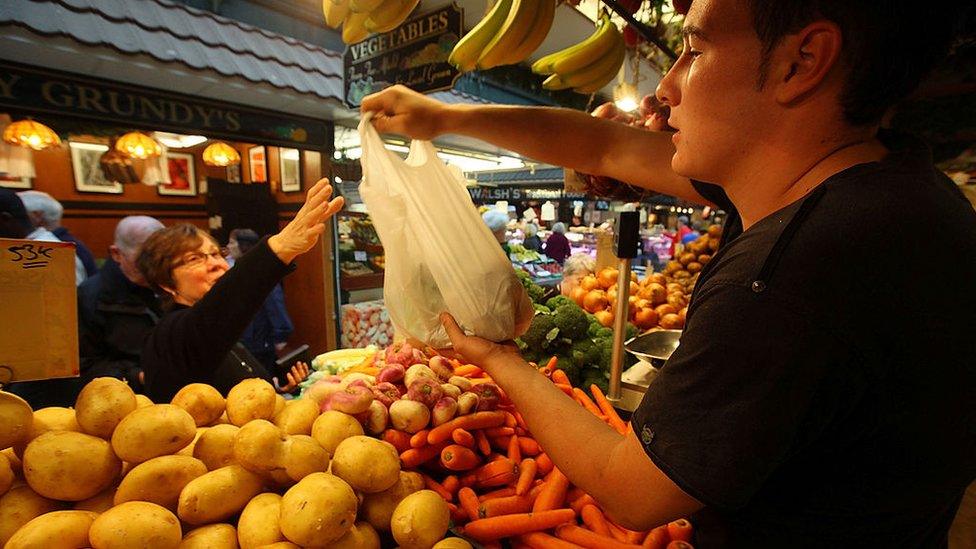Inflation 'set to soar to 4% by late 2017'
- Published
- comments
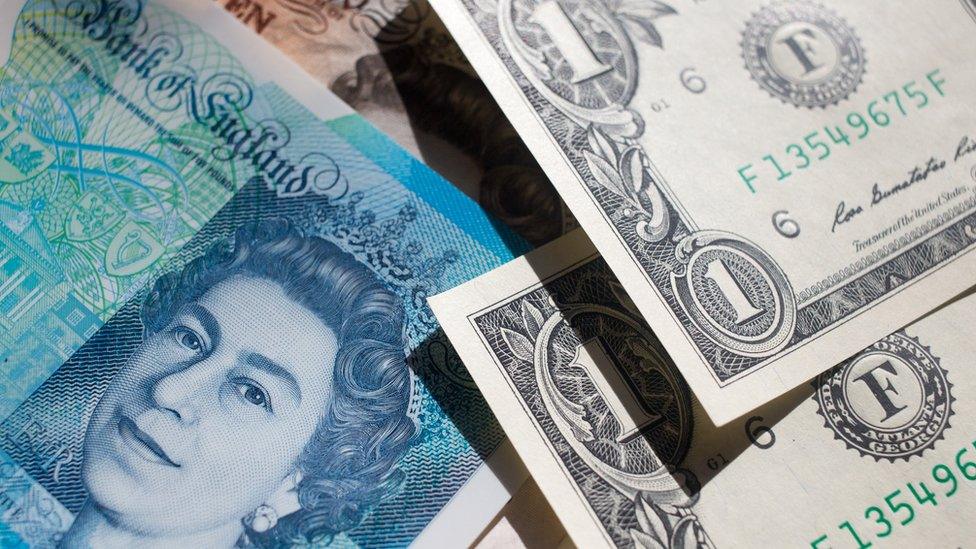
UK inflation will quadruple to about 4% in the second half of next year and cut disposable income, a leading think tank has forecast.
The rise in prices will "accelerate rapidly" during 2017 as the fall in sterling is passed on to consumers, according to the National Institute for Economic and Social Research (NIESR).
The revised figure is sharply higher than the 3% it forecast in August.
The economy also faces "significant risks" that could restrict growth.
"Households have really got a choice. Do they spend less or do they start saving less?" Dr Angus Armstrong, director of macroeconomics at NIESR, told the BBC's Today programme.
He said given the savings ratio was at its lowest level since 2008, "the most likely scenario is that they spend much less, hence the weaker [growth] forecast for next year."
Consumer Price Index (CPI) inflation rose to 1% in September, up from 0.6% in August, the Office for National Statistics (ONS) said last month.
That was the highest rate for nearly two years as the cost of clothes, petrol and hotel rooms increased.

The Bank of England is expected to raise its forecasts for inflation in its quarterly Inflation Report on Thursday.
The pound has fallen sharply against the dollar and euro since the Brexit vote and NIESR expected sterling to remain at about $1.22 and €1.11 both this year and next.

You might also like

Recent price increases blamed on falling pound
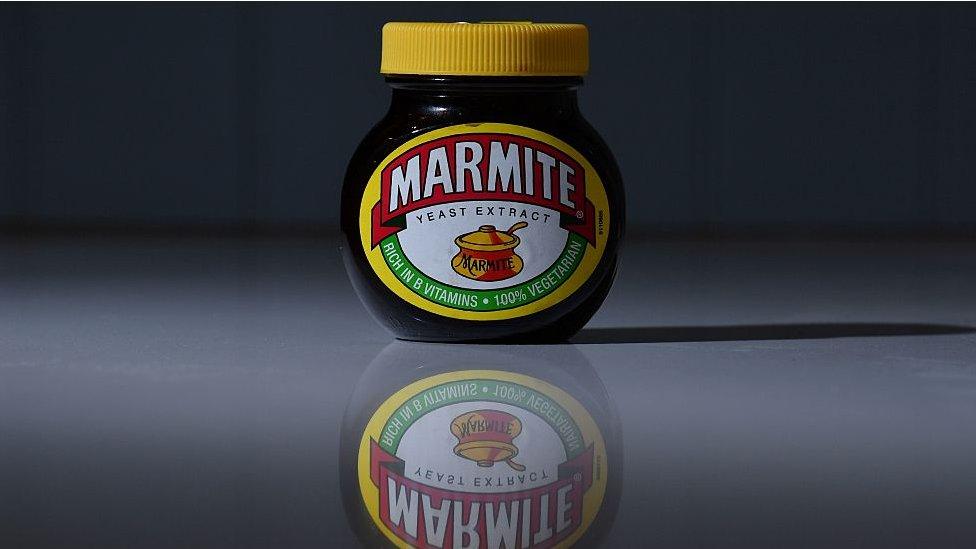
The cost of a cuppa: Typhoo tea, which imports all its tea leaves, said the sharp fall in the pound meant it had no choice but to increase prices
Marmite and Pot Noodles: Food manufacturer Unilever says the pound's drop forced it to raise the wholesale price of these and many of its other products, which some supermarkets have passed on to customers
Wine: Online wine retailer Naked Wines said it would raise the cost of its wine by 5% from November because of increasing import costs linked to sterling
Rising prices for clothes, hotel rooms and petrol drove the official rate of inflation to 1% in September, its highest level for almost two years
Model trains: Hornby and Dapol have both said they've increased prices between 10 and 20% due to the higher cost of imports
Apple has increased the prices of its laptop and desktop computers in the UK by hundreds of pounds citing currency fluctuations as one of the reasons
Microsoft said some of its UK business service prices would go up by 22% in 2017, reflecting the pound's weakened value against the euro

'Hefty price rises'
Simon Kirby, head of macroeconomic modelling and forecasting at NIESR, said the fall in sterling had been the most striking feature of the economic landscape since the EU referendum.
"This will pass through into consumer prices over the coming months and quarters," he said. "While we expect this to be only a temporary phenomenon, it will nonetheless weigh on the purchasing power of consumers over the next couple of years."
The last time CPI inflation hit 4% was in 2011, before falling back over the last five years.
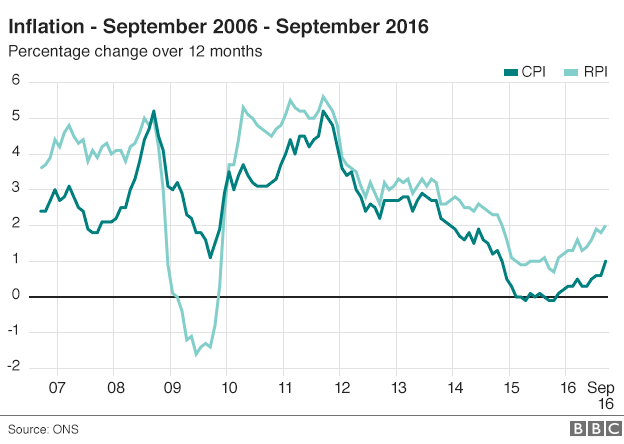
Samuel Tombs, chief UK economist at Pantheon Macroeconomics, said: "NIESR is right to warn that households are about to endure a renewed period of falling living standards due to soaring inflation.
"Fuel, food and technology prices already are rising in response to the weaker pound, and hefty price rises will be seen across the whole spectrum of consumer goods next year."
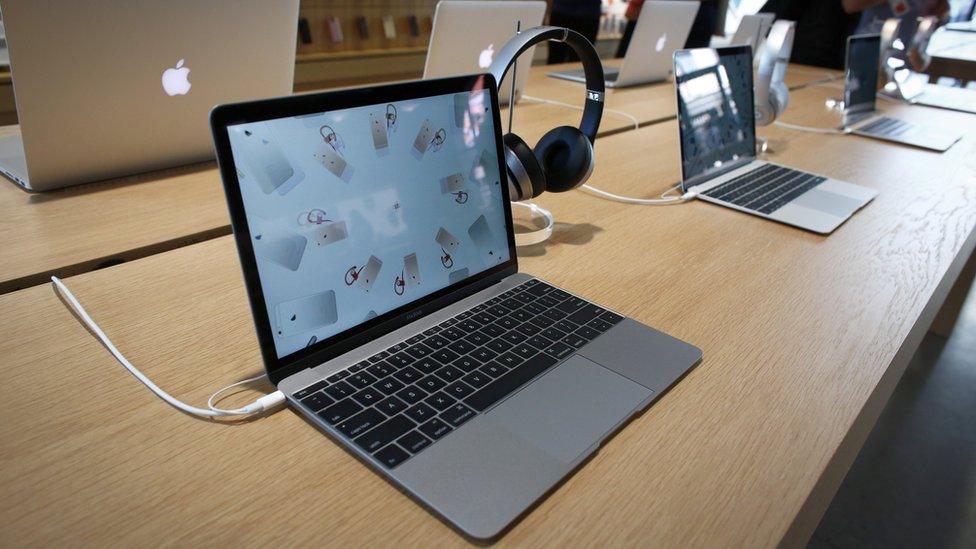
Apple has raised its UK prices following the slide in sterling
Although the Bank of England's Monetary Policy Committee (MPC) is not likely to raise interest rates in response, according to Mr Tombs, he said that the fall in sterling meant the MPC had little room to manoeuvre.
NIESR predicted that the economy would expand by 2% in 2016 - higher than its previous forecast of 1.7% - but would fall to just 1.4% growth next year.
"Rather than a significant change to our view of the future, this is largely due to revisions to historic data," it said.
'Heightened uncertainties'
Howard Archer, chief UK economist at IHS Markit, said inflation hitting 4% would result in "a major squeeze on consumer purchasing power".
That could then make GDP growth of 1.4% in 2017 "hard to achieve given the likely heightened uncertainties" once the UK starts Brexit negotiations, he said.
Lower growth along with uncertainty could affect hiring by companies, NIESR warned. It expected unemployment to peak at 5.6% next year, before gradually falling.
The think tank also predicted that inflation would only return to the Bank of England's target of 2% in 2020.
NIESR is the UK's oldest independent economic research body and was founded in 1938.
- Published18 October 2016

- Published3 August 2016
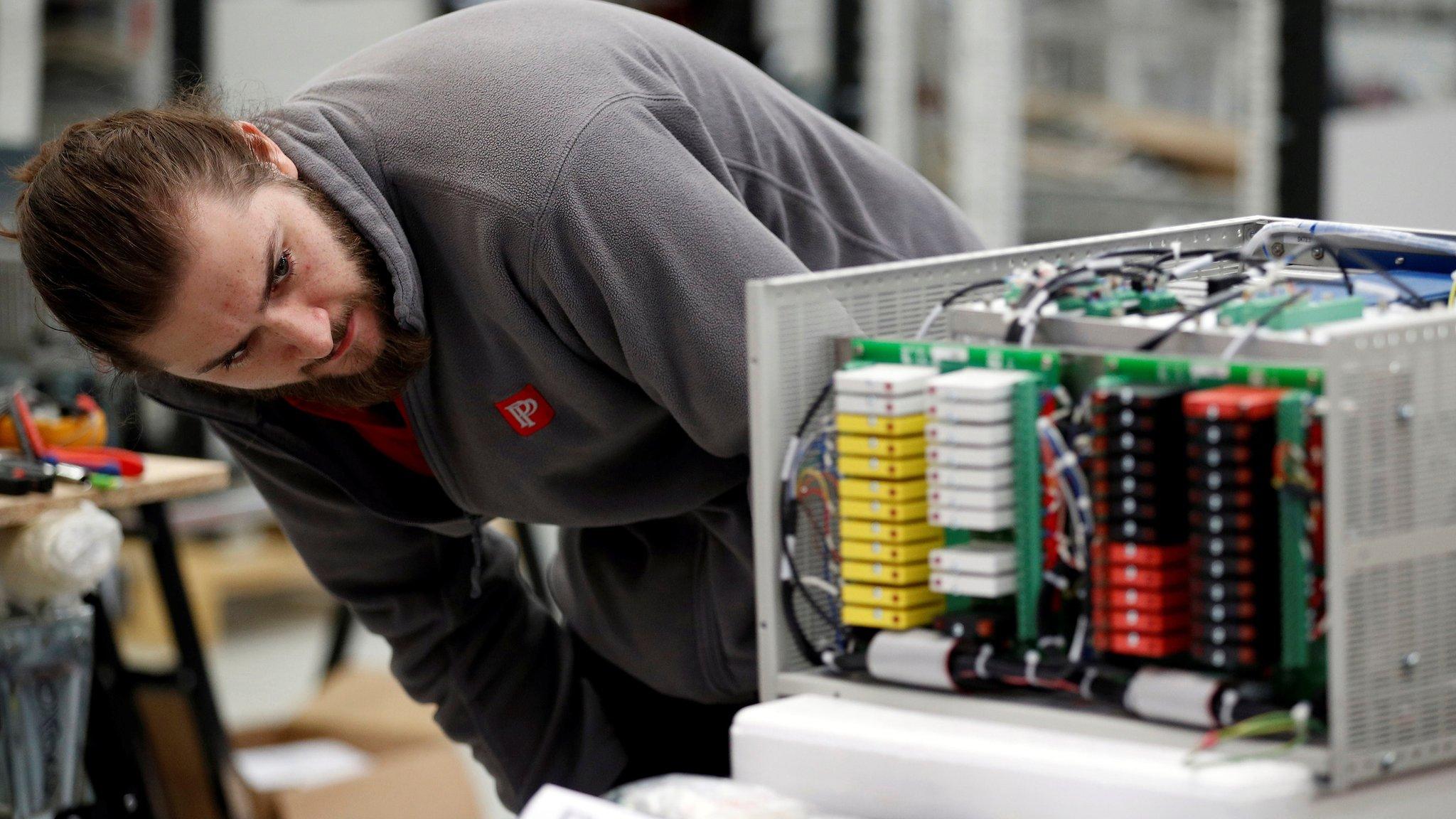
- Published17 January 2017
